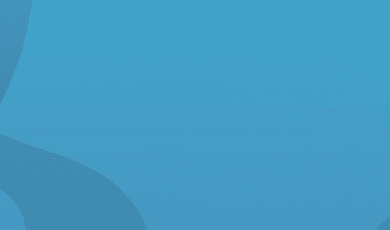Beyond Profits: Can Healthcare Companies Be Ethical and Still Thrive?
Exploring the intersection of profitability and ethics, and how innovation in healthcare communication can enable organizations to succeed financially while staying true to their values.
Introduction
In today’s fast-evolving healthcare landscape, the spotlight is not solely on medical breakthroughs or bottom lines. Increasingly, patients, providers, and stakeholders are scrutinizing whether healthcare companies can maintain ethical standards while achieving financial success. The question, “Can healthcare companies be ethical and still thrive?” resonates across boardrooms and hospital corridors alike.
This quandary becomes even more complex as globalization and diversity reshape patient needs and expectations. Effective communication—spanning languages, cultures, and accessibility—has emerged as a critical factor in delivering ethical care and building trust. Can companies delivering translation, localization, and communication solutions elevate ethics while maintaining profitability? Let’s explore how the future of healthcare will be increasingly defined by organizations that embrace both financial sustainability and ethical imperatives.
The Ethical Imperative in Healthcare
Healthcare has always carried a unique ethical responsibility. Unlike other industries, the consequences of mistakes, miscommunication, or neglect can be life-altering or even fatal. As such, the core principles of beneficence, non-maleficence, autonomy, and justice provide the moral compass for healthcare practitioners and organizations.
However, with commercialization and the rise of private healthcare providers, there’s a real and persistent tension between driving profits and upholding these values. Concerns over patient privacy, equitable access to services, cost transparency, and informed consent are persistent ethical frontiers that challenge healthcare businesses every day.
The Business Case for Ethics in Healthcare
Some argue that an unwavering commitment to ethics can handcuff profitability. Yet, numerous studies and industry cases show that ethical practices are not only compatible with but can also be catalysts for business growth:
- Patient Trust and Loyalty: Medical service providers who respect patient autonomy and confidentiality often enjoy higher patient satisfaction, loyalty, and word-of-mouth referrals.
- Regulatory Advantages: Adhering to ethical standards helps avoid legal pitfalls, fines, and reputation-damaging incidents that can arise when companies cut corners.
- Talent Attraction and Retention: Employees are attracted to workplaces that prioritize values. Retaining skilled professionals is crucial given the global shortage in healthcare specialization.
- Innovation and Market Leadership: Ethical companies lead in developing patient-centered innovations, opening new markets among previously underserved populations.
Communication Barriers: An Ethical and Financial Challenge
Communication breakdown is one of the often-overlooked ethical hazards in healthcare. Language barriers, cultural misunderstandings, and inaccessible information can undermine informed consent, result in misdiagnosis, and lead to poor health outcomes.
According to the National Institutes of Health, patients with limited English proficiency experience higher rates of medical errors and are less likely to receive preventive services. For healthcare companies, this not only raises grave ethical concerns but also exposes them to greater financial risk through malpractice claims, regulatory penalties, and loss of patient trust.
Innovative Solutions: Communication at the Heart of Ethical Care
Forward-thinking healthcare companies are recognizing that improving communication is both a moral and a financial imperative. By integrating advanced translation services, speech data collection, and robust localization strategies, they can effectively serve diverse populations and unlock new business opportunities.
Here are some ways that innovation in healthcare communication supports the dual goals of ethics and profitability:
- Translation and Interpretation Services: Instant and accurate medical translations bridge language gaps, safeguard informed consent, and empower patients to participate in their care decisions.
- Speech Data Collection: Collecting and analyzing real-world speech samples helps train AI-powered healthcare tools to be more inclusive, reducing bias and ensuring accuracy for speakers of different languages and dialects.
- Recruitment for Localization Professionals: By hiring skilled linguists and cultural consultants, healthcare systems can adapt not only language but also context-specific information—improving comprehension and compliance among patients.
- Accessible Digital Communication: Ensuring that patient portals, telehealth consultations, and educational materials are available in multiple formats and languages advances both health equity and operational efficiency.
Rising to the Challenge: The Role of Emerging Platforms
As a new breed of platforms emerge to offer targeted healthcare communication solutions—including translation, speech data services, and professional recruitment—they have the potential to transform the sector. These platforms can streamline processes, reduce errors, and foster global collaboration, all while centering ethical principles.
Not only do these platforms empower healthcare organizations to reach wider patient demographics ethically, but they also present strong business cases for expansion and revenue diversification. For example, by serving a growing population of non-English speakers or by licensing their technology, these companies can create sustainable, repeatable income streams.
Case Study: Combining Ethics and Profit in Healthcare Communication
Consider the example of a hospital network that invested in a comprehensive language access program, including 24/7 tele-interpretation and multilingual patient education materials. After implementation, the hospital saw:
- A 35% reduction in readmission rates among non-English speaking patients.
- Improved patient satisfaction scores, boosting the hospital's reputation.
- Lower risk of costly malpractice complaints related to communication mishaps.
- Enhanced engagement with the local community, opening opportunities for new partnerships and funding.
This scenario proves that prioritizing ethical communication strategies can simultaneously protect patients, fulfill legal requirements, and improve financial performance.
Conclusion: Thriving Through Ethical Innovation
The future of healthcare will be written by those bold enough to go beyond profits, putting ethics at the core of their strategy and operations. As patient populations grow more diverse and the world becomes increasingly interconnected, the demand for ethical, accessible communication in healthcare is only set to increase.
Innovative platforms poised to deliver solutions in healthcare communication—spanning translation services, speech data collection, and recruitment for localization professionals—hold immense promise. These companies are uniquely positioned to help bridge the gap between what is profitable and what is right, demonstrating that good business is, indeed, ethical business.
For healthcare companies, embracing this dual commitment doesn’t just mitigate risk or enhance reputation—it unlocks new avenues for growth. By investing in sophisticated communication tools and skilled professionals, they can expand their reach, increase operational efficiency, and elevate the standard of care for all.
The answer, then, is clear: Yes, healthcare companies can be ethical and still thrive. In fact, in a world where trust, equity, and authenticity matter more than ever, ethics may just be the ultimate competitive advantage.








